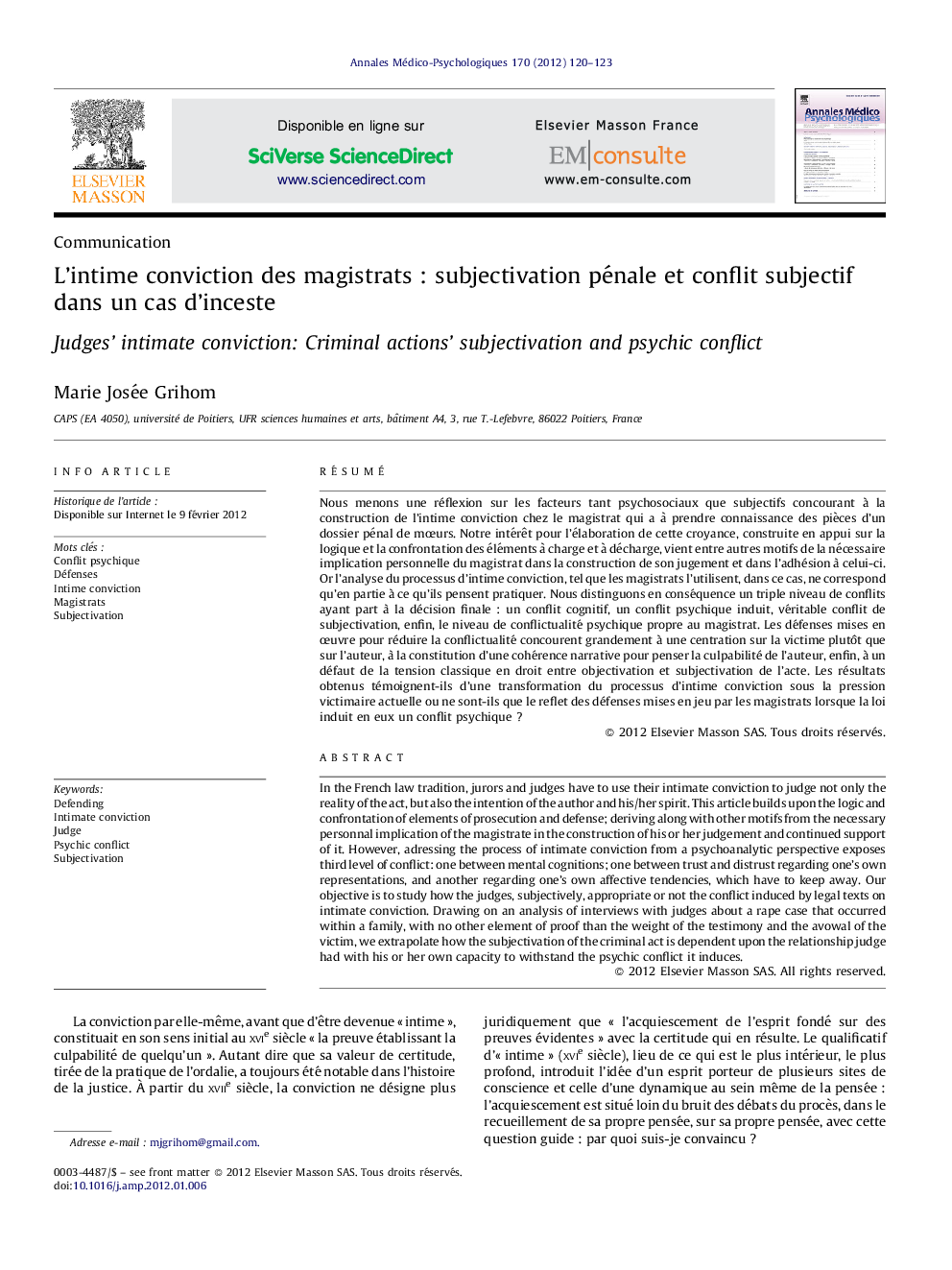| کد مقاله | کد نشریه | سال انتشار | مقاله انگلیسی | نسخه تمام متن |
|---|---|---|---|---|
| 314436 | 534610 | 2012 | 4 صفحه PDF | دانلود رایگان |

RésuméNous menons une réflexion sur les facteurs tant psychosociaux que subjectifs concourant à la construction de l’intime conviction chez le magistrat qui a à prendre connaissance des pièces d’un dossier pénal de mœurs. Notre intérêt pour l’élaboration de cette croyance, construite en appui sur la logique et la confrontation des éléments à charge et à décharge, vient entre autres motifs de la nécessaire implication personnelle du magistrat dans la construction de son jugement et dans l’adhésion à celui-ci. Or l’analyse du processus d’intime conviction, tel que les magistrats l’utilisent, dans ce cas, ne correspond qu’en partie à ce qu’ils pensent pratiquer. Nous distinguons en conséquence un triple niveau de conflits ayant part à la décision finale : un conflit cognitif, un conflit psychique induit, véritable conflit de subjectivation, enfin, le niveau de conflictualité psychique propre au magistrat. Les défenses mises en œuvre pour réduire la conflictualité concourent grandement à une centration sur la victime plutôt que sur l’auteur, à la constitution d’une cohérence narrative pour penser la culpabilité de l’auteur, enfin, à un défaut de la tension classique en droit entre objectivation et subjectivation de l’acte. Les résultats obtenus témoignent-ils d’une transformation du processus d’intime conviction sous la pression victimaire actuelle ou ne sont-ils que le reflet des défenses mises en jeu par les magistrats lorsque la loi induit en eux un conflit psychique ?
In the French law tradition, jurors and judges have to use their intimate conviction to judge not only the reality of the act, but also the intention of the author and his/her spirit. This article builds upon the logic and confrontation of elements of prosecution and defense; deriving along with other motifs from the necessary personnal implication of the magistrate in the construction of his or her judgement and continued support of it. However, adressing the process of intimate conviction from a psychoanalytic perspective exposes third level of conflict: one between mental cognitions; one between trust and distrust regarding one's own representations, and another regarding one's own affective tendencies, which have to keep away. Our objective is to study how the judges, subjectively, appropriate or not the conflict induced by legal texts on intimate conviction. Drawing on an analysis of interviews with judges about a rape case that occurred within a family, with no other element of proof than the weight of the testimony and the avowal of the victim, we extrapolate how the subjectivation of the criminal act is dependent upon the relationship judge had with his or her own capacity to withstand the psychic conflict it induces.
Journal: Annales Médico-psychologiques, revue psychiatrique - Volume 170, Issue 2, March 2012, Pages 120–123